World Pride 2025 Profile: The Queen of Karachi
From Pakistan paparazzi to Larry's Lounge, Ali Saleem finds safe harbor in D.C.


In the nearly inexhaustible catalog of D.C.-based mission-driven organizations, AsylumWorks is a noble entry for assisting asylum seekers and other “newcomers” in the D.C. metro area and beyond.
Their LGBTQ component, PRISM (Pride Refugee & Immigrant Support Meet-up), grew out of similar work being done by a group at The DC LGBTQ+ Community Center, Center Global. And atop PRISM’s Facebook page is a photo from the 2022 Capital Pride Parade. There are many beaming faces, including Ali Saleem’s, front and center.
Front and center suits Saleem perfectly. He’s not merely at home in the spotlight. Arguably, he was born for it, 45 years ago in Pakistan. There, Saleem reached the most dazzling heights of celebrity, through a journey that began in his mother’s closet.
“I was completely in awe of all the gorgeous women, all the divas,” says Saleem, reaching back to childhood. “We had a lot of Indian movies — ‘Bollywood,’ as you call it…. And then I fell in love with Benazir [Bhutto] when I was 9 years old and she became prime minister of Pakistan for the first time. This beautiful woman with flawless skin and red lipstick who wears the dupatta over her head — so elegant and so graceful. I wanted to be like these divas.”
Young Ali did just that when his Army officer father and government official mother had evenings out, diving into his mother’s wardrobe and cosmetics. Occasionally, his parents arrived home to find him reveling in the transformation. In some families, this might have prompted severe punishment. Saleem says his parents never offered more than a mild scolding.
As his schooling progressed and Saleem found himself drawn to dramatic arts, opportunities arose to perform. Eventually, he even had a chance to remake himself as his favorite diva, the aforementioned Prime Minister Bhutto.
“I walked onstage as Benazir Bhutto, but in a burqa,” Saleem recalls of a performance with a sketch-comedy troupe very early in his career. “We had the prime minister of Pakistan at the time, Shaukat Aziz, sitting in the audience. These were very high-priced tickets, a very elite audience, the ‘who’s who’ of Pakistan political society and celebrities.
“When I finished my opening dialogue, there was pin-drop silence. And then there was just an uproar! People were bursting with laughter and falling out of their chairs. There was this cheer. I knew this was what I wanted to do for the rest of my life, to be an entertainer.”
With Benazir Bhutto as his muse, in a sense, that is what Saleem did. For a time, he would continue this impersonation, this homage, as his star rose ever higher in Pakistani high society. He even brought his Bhutto likeness to national television audiences, while outwardly embracing an androgynous style for themself.
If Bhutto had twice been Pakistan’s prime minister, Saleem was to become its queen — “I was the queen of Karachi for sure, Honey!” — as an entirely new persona, Begum Nawazish Ali.
It was 2004, says Saleem, that a film-industry friend suggested that he break away from the Bhutto box. “‘You need to be your own self. I see a diva in you!'” is how Saleem remembers the guidance. “That conversation was so powerful for me.”
The friend assigned a new persona, with “Begum” being a sort of amorphous word in Urdu, that might mean “princess” or “lady” or, in Saleem’s case, a wife of high-ranking social status. “Nawazish” came from a popular song, where it was used to express gratitude. And Ali is simply pure Saleem.
Working as an associate producer for a Pakistani TV station, Saleem wrote up a proposal for a talk show to be hosted by this new persona. While there was immediate interest from colleagues, Saleem says his project languished until a newly formed competing network got wind of it. Saleem’s Late Night with Begum Nawazish Ali was launched, Aug. 13, 2005.
“Oh, my God. It was unbelievable,” says Saleem, his voice cracking slightly. “I’m getting emotional just talking about it. It was as if God and the entire universe was suddenly answering my prayers…. My first episode, I was able to get Makhdoom Amin Fahim, who was the acting chair of the Pakistan Peoples Party. And Reema, who was the No. 1 film actress…. It was the most talked about show in Pakistan.”
Shah Yasir, a Pakistani screenwriter who lives in the D.C. area, shares his sense of what it was like in Pakistan at the time, watching Saleem’s celebrity blossom.
“I remember first hearing about a boy who could impersonate former Prime Minster Benazir Bhutto when I was in high school in Karachi,” Shah says. “I even got to see them give an impromptu performance of that impersonation at a friend’s party shortly before I left for college in the States. After that, I watched them rise quickly to fame as a female-impersonating talk show host on Pakistani TV.
“Begum Nawazish Ali was a hit among countless families who not only accepted, but also adored, a drag queen…. I think it’s also noteworthy how drag queens reading storybooks is still a topic of such vitriol and controversy in the States in 2024, when in Pakistan a drag queen talk show was not only accepted but in fact a huge hit among millions of households back in the early 2000s.”
As the U.S. has, in ways, taken conservative turns, so has Pakistan. Saleem says that while audiences across the social strata were adoring, work trips to India were sparking some interest from shady corners of government. Saleem says he wasn’t particularly cooperative with requests from government agents — requests, says Saleem, that went so far as to demand he arrange liaisons between female celebrities he knew and government officials.
While he had other professional projects in the works, his show was canceled. He later launched another talk show, simply as himself, The Late Late Show with Ali Saleem, but that, too, ended. At the same time, he says, a mood hostile to his brand of entertainment was growing.
“There’s always the right wing, the self-righteous people who hate you for who you are,” Saleem bluntly observes. “As my fan base was increasing, so were the people who were against what I represented. For them, I was becoming a bigger and bigger threat. ‘Is this what the Islamic Republic of Pakistan stands for? Is this a role model for our boys? This needs to be stopped.'”
Saleem says his focus on work, the whirlwind of parties, made it easy for him not to notice how the political environment was turning for the worse. Until his best friend, Sheikh Amir Hassan, was murdered in 2008. Hassan had been at Saleem’s home for a party, returning to his own residence in the early hours. Later that morning, Saleem received word that Hassan had been shot in his home. Hassan’s murder was sensationalized, with a variety of outlets victim-blaming, with Saleem’s own lifestyle becoming fair game in the press.
As the atmosphere continued to change, Saleem says he was later advised by authorities that someone related to the Taliban had been arrested with suicide-bomb equipment. It was not lost on Saleem that in 2007 a suicide bomber assassinated his beloved Benazir Bhutto.
“During interrogation, he revealed the names of celebrities that the Taliban were going to target,” Saleem says. “My name was on top of the list, of course, No. 1.”
The heyday had ended. The curtain fell. Saleem no longer felt safe. With close friends in the D.C. area, he made his escape. Since 2019, Washington has been his safe haven. Thanks to his contacts, he’s happily serving drinks at the beloved Dupont-area gay bar Larry’s Lounge. His mother recently came for a visit from Pakistan, her first since he arrived in the U.S. Saleem is building community with PRISM and others, volunteering for Kamala Harris’s presidential campaign, though he is a nonvoting resident.
While the Pakistan party has ended, Saleem seems nonetheless very content with the new life he has built. Certainly, Saleem has staked a claim as one of the many local residents who bring some invaluable piece of the LGBTQ world to Washington. Among the area’s South Asian diaspora, Begum Nawazish Ali makes clear from time to time that she’s not retired, performing at private gatherings. She also hints that she might even break out the finery for World Pride.
“I would love to march as Begum, that is my plan,” Saleem shares, excited for the Queer world to come to D.C. en masse. “We are international. That’s why we have the rainbow. Despite our racial differences or cultural differences, or nationalities and all of that, we come together and unite as one people because we all want to see this world becoming more accepting, more tolerant, more loving, more generous.”
This profile is part of an exclusive Metro Weekly series leading up to World Pride 2025, highlighting the global reach of D.C.-based organizations, activists, artists, and others.
Support Metro Weekly’s Journalism
These are challenging times for news organizations. And yet it’s crucial we stay active and provide vital resources and information to both our local readers and the world. So won’t you please take a moment and consider supporting Metro Weekly with a membership? For as little as $5 a month, you can help ensure Metro Weekly magazine and MetroWeekly.com remain free, viable resources as we provide the best, most diverse, culturally-resonant LGBTQ coverage in both the D.C. region and around the world. Memberships come with exclusive perks and discounts, your own personal digital delivery of each week’s magazine (and an archive), access to our Member's Lounge when it launches this fall, and exclusive members-only items like Metro Weekly Membership Mugs and Tote Bags! Check out all our membership levels here and please join us today!





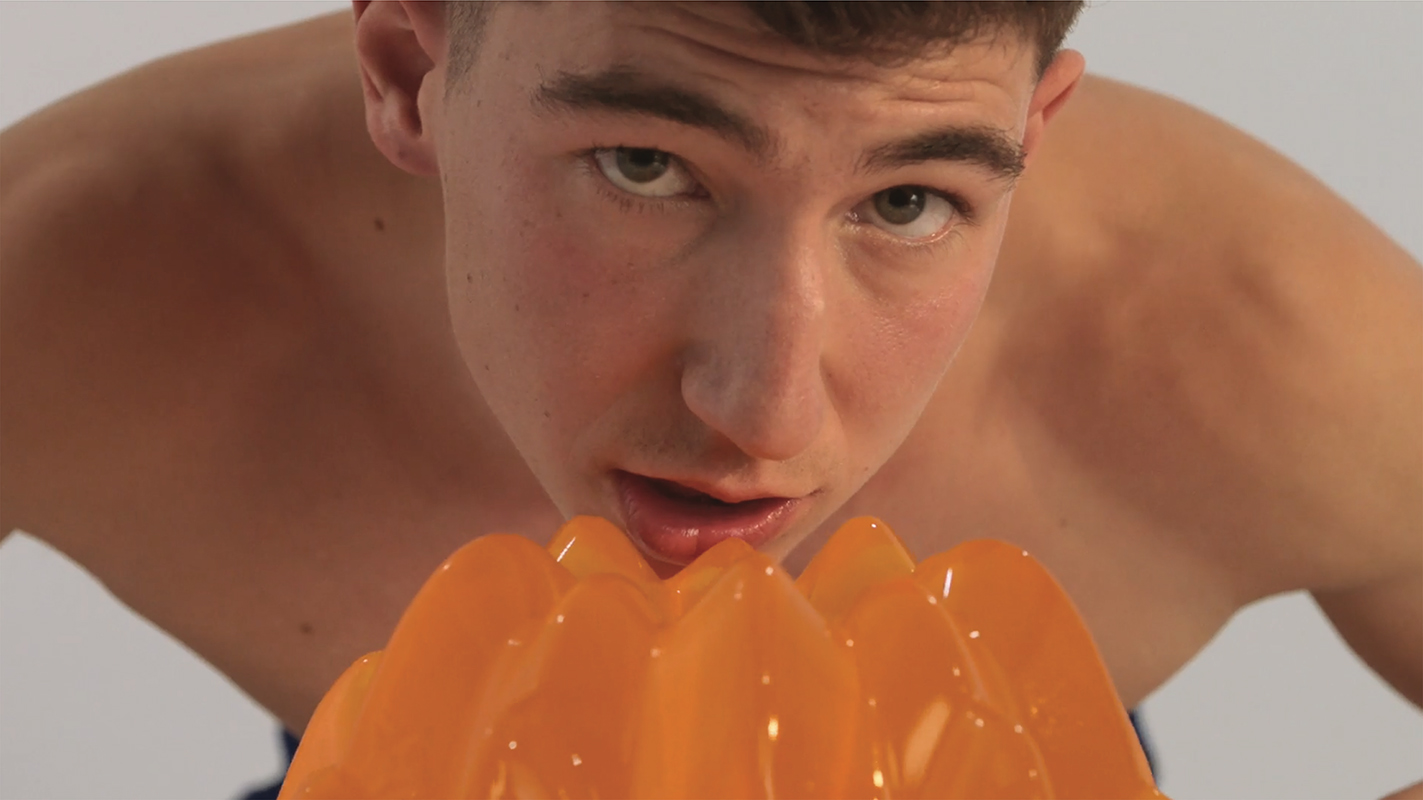
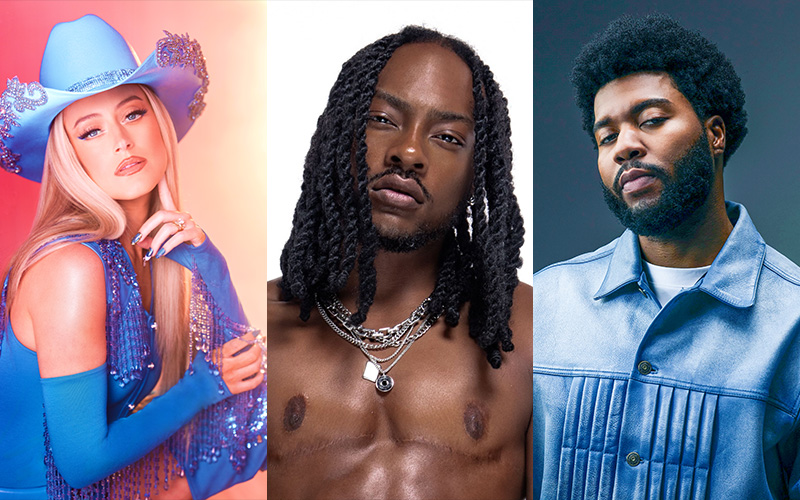
















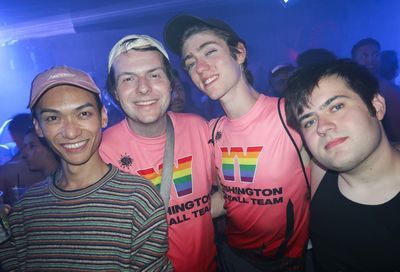
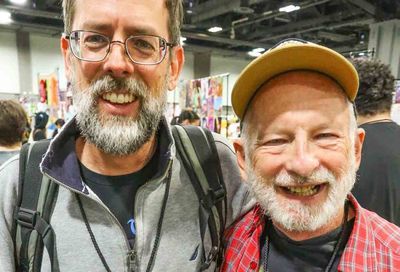
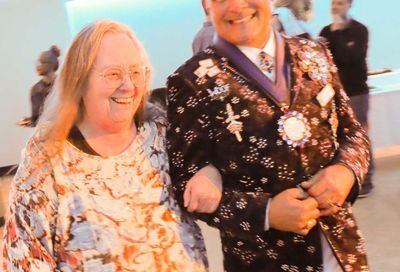
You must be logged in to post a comment.